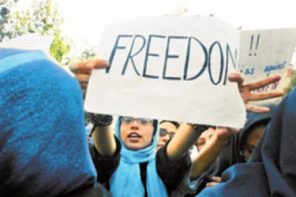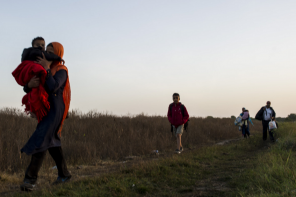At a small school in Pennsylvania, students staged a sit-in to protest the way their campus handles rape reports. This piece, from the Philadelphia Inquirer, says that on a campus of 2400 students, there were five sexual assaults reported last year.
Any woman will tell you that’s got to be a case of underreporting.
The article will tell you a bit more about the students’ complaints; it will also tell you a lot about the college administration’s response. In fact, while it details many (all?) of the college’s new plans and policies on sexual assault, it gives almost no details about what the students find remiss and how they want that changed. The article will, however, allow the university president to insinuate that the protesters are stupid or naive: “It’s extremely complex. Some folks would like to make it more simple than it is,” the paper quotes the president as saying.
I remember this tactic from the campuses I’ve spent time on. It almost never mattered the issue — curbing sweatshop labor in insignia clothing, or getting an African studies program up and running, say. The answer from the people to whom the complaints were made was always, “Actually, we’re already doing that.” And yes, sometimes, the similarly sly use of press interest to make the protest of young adults look like the impatient demands of adolescents.
One more thing: Can we all please, please finally agree that the word “probe” has absolutely no place in stories about rape or sexual assault? I’m looking at you, Inquirer — but also the thousands of newspaper who use “probe” as a shortcut for “investigation” in their headlines. (By Google, it seems to happen, like, every third day.)
If the Inquirer and others want to take a lesson in good journalism on campus rape, I recommend NPR’s four-part series on the way campuses handle sexual assaults. The story is a study in masterful use of survivor voice to illuminate a larger social issue. The presidents of the schools in question largely had the good sense to keep their mouths shut, but the piece raises a critical question — one someone in Pennsylvania should repeat: Why do colleges treat criminal acts as “teachable moments”? Why do they respond to rape like it’s a momentary lapse in behavior from otherwise good, hard-working guys? When did we forget that rape is a crime?



